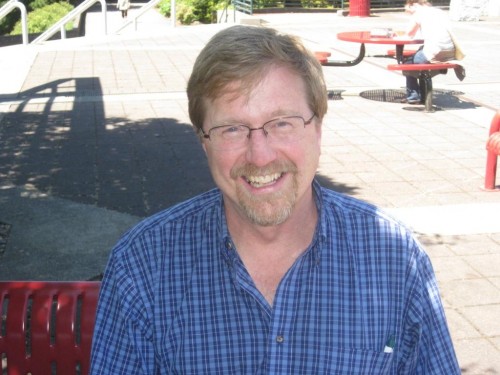This content was published: July 19, 2011. Phone numbers, email addresses, and other information may have changed.
Sylvania dean begins national task force work for German programs
Photos and story by Kate Chester
An intensive, three-day work session in Chicago in late June marked the launch of Dave Stout’s service on the American Association of Teachers of German Task Force on Community Colleges.
Stout was invited to serve as part of the group this spring because of his role with Portland Community College as the division dean of English and World Languages on the Sylvania Campus. The work session was hosted and co-sponsored by the Chicago office of the Goethe Institute, with further support from Chicago-based Austrian, German, and Swiss cultural attachés and the German/American Chamber of Commerce.
“This session offered me an excellent opportunity to network with other institutions from across the country and to develop a clear picture of the state American community college German programs are in,” said Stout. “I was able to listen and compare what we are doing at PCC to other programs – and I’m confident that PCC’s program is among the strongest in the nation.”
The task force is made up of a dozen community college colleagues from across the country, whose goal is to develop a thorough profile of German programs in America’s community colleges. The group will gather detailed information about the components of healthy programs, suggestions for giving students the best possible foundation in German studies during their first two years of college, and strategies for thriving in difficult financial times.
After sharing this information with community college German programs across the nation, the task force will establish an online forum for further discussion of ways to sustain and grow opportunities for community college students to learn German.
One of the task force’s key initiatives is to connect German faculty and students with local German businesses or those American firms doing significant business with Germany, Austria and Switzerland.
“At the work session we heard from the German Chamber of Commerce and the counterparts from Austria and Switzerland about how to approach these businesses, and the discussion made me optimistic that our German program at PCC can establish exciting business partnerships here, too,” Stout said.
The task force began its work in 2010 by conducting a survey of approximately 240 community college German programs. According to Stout, early analysis of the results shows that 36 percent of the responding institutions report having no full-time German instructors, relying instead exclusively on part-time faculty. Further, 37 percent of the respondents reported teaching another language in addition to German.
Despite these challenges, however, 42 percent noted increasing enrollment in German courses.
“Without full-time faculty – or by being staffed with faculty who are pulled in different directions as they juggle multiple language instruction duties – it is extremely difficult to build a cohesive German program,” said Stout. “You run the risk of creating a set of disjointed course offerings that struggle to achieve sufficient enrollment. Or worse, enrollment might be there but the lack of cohesiveness doesn’t create the best learning outcomes for students – a less than top notch student experience.”
The task force will give an update on its findings and recommendations at the national American Council for the Teaching of Foreign Languages conference in Denver in November.

